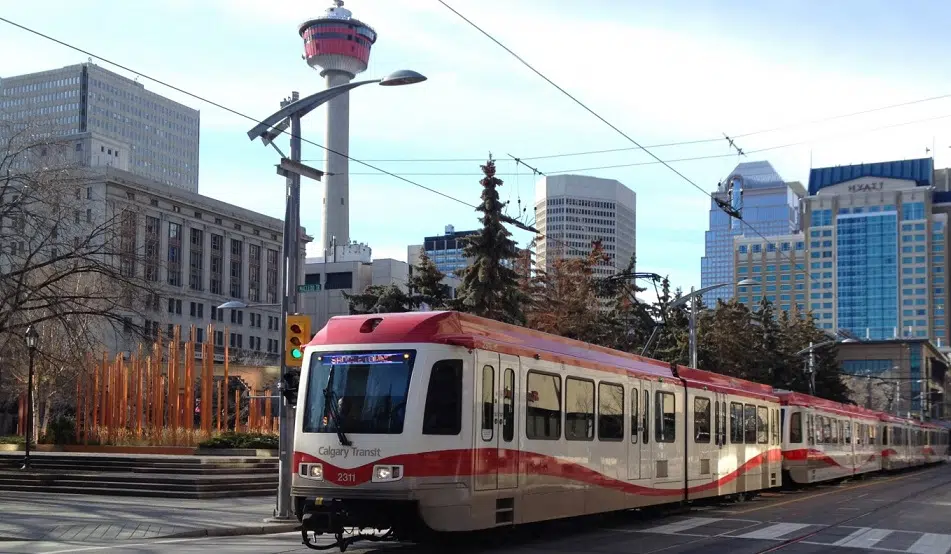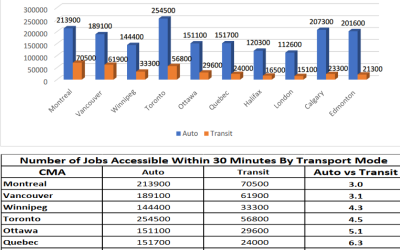In 1952 there were just under 5,000 taxis in service on the island of Montreal. Hazard a guess as to how many there are now? 4,445. More than 500 fewer. Despite the fact that there are 500,000 more Montrealers than there were then and they’re a lot richer and better able to afford taxi service.
Why the drop in supply? Because in Quebec, as in most other Canadian jurisdictions, we have supply management in the taxi industry. And it operates just like supply management in the dairy and poultry industries. They say it’s a free country but if you don’t have a permit to enter the industry, you’re not allowed in. Always wanted to run a taxi business? Got a better idea for how to make it work? Tough luck. Take your entrepreneurial instincts to some other industry where entry isn’t restricted. But not, of course, milk or chickens.
The numbers quoted above are from a new paper on taxi regulation from the Montreal Economic Institute. It details the effects of the artificial restriction of supply. The most obvious is that permits to operate a taxi have acquired significant scarcity value. In Montreal, they now cost more than $200,000. In neighbouring Laval, almost $250,000.
Ideally, permits would cost almost nothing. An issuing authority would make sure applicants had satisfied all requirements regarding driving ability, sobriety, non-criminality, civility (or maybe that’s asking too much: we’re dealing with taxi drivers, after all), would certify everyone who did pass, and would fold the cost of all that checking into the price of the permit. You wouldn’t think it would come to more than a few hundred dollars. Certainly nothing in the hundreds of thousands of dollars.
Why are permits currently so valuable? Because the tightly restricted supply allows prices to be much higher than they would be if the normal forces of demand and supply were in effect. It’s completely screwy, of course. We say we don’t want people to drive drunk. We say (many people do, at any rate) we want to reduce reliance on private automobiles in downtown areas. But then we pursue a taxi-regulation policy that raises the cost of having someone else do your driving for you.
That’s OK, though. We’ve done screwier. We say we want kids to get have good nutrition and grow strong bones, but we adopt a system of dairy regulation that jacks up the price of milk, thus encouraging kids to buy pop instead. Don’t want to eat too much red meat? Great idea, except that supply management for chickens has driven up the price of the most obvious protein alternative.
Defenders of the current system of taxi regulation argue that it’s necessary in order to maintain good service. Someone who has made a $200,000 investment in a taxi permit supposedly won’t risk offending could-be return customers. That’s a very strange argument: Reduce competition so as to assure better service. Does that work in any other industries? Is there really a better way to encourage good service than to be able to threaten to take your custom elsewhere?
If we did have an open market in taxis, nothing would prevent some firms from focusing their business plan on quality service. Consumers for whom quality was the primary consideration would patronize those firms. Consumers who were mainly concerned with price could go elsewhere.
What is especially bizarre about the supply-management mentality is the idea that the onus always lies on the would-be new entrant to an industry to prove why he or she should be allowed in. The Quebec government does occasionally issue new taxi permits. But potential entrants have to go through a long process of establishing there is sufficient demand to support their supply.
No doubt all existing restaurant owners would prefer that prospective new entrants to that famously fickle business be required to prove to restaurant regulators that they will be able to attract diners without hurting established businesses, but we don’t do that. Nor do we do it in most other industries, which we let operate according to time-honoured capitalist principles that now seem to be understood virtually everywhere in the world: If you think you can attract customers, come on in and give it a try. If you can, you’ll prosper and maybe some of your competitors will be in trouble. If you can’t, well, better luck at something else.
That approach works fine just about everywhere else in the economy. What’s so special about taxis, milk and chicken that they need exemption from the usual rules?


